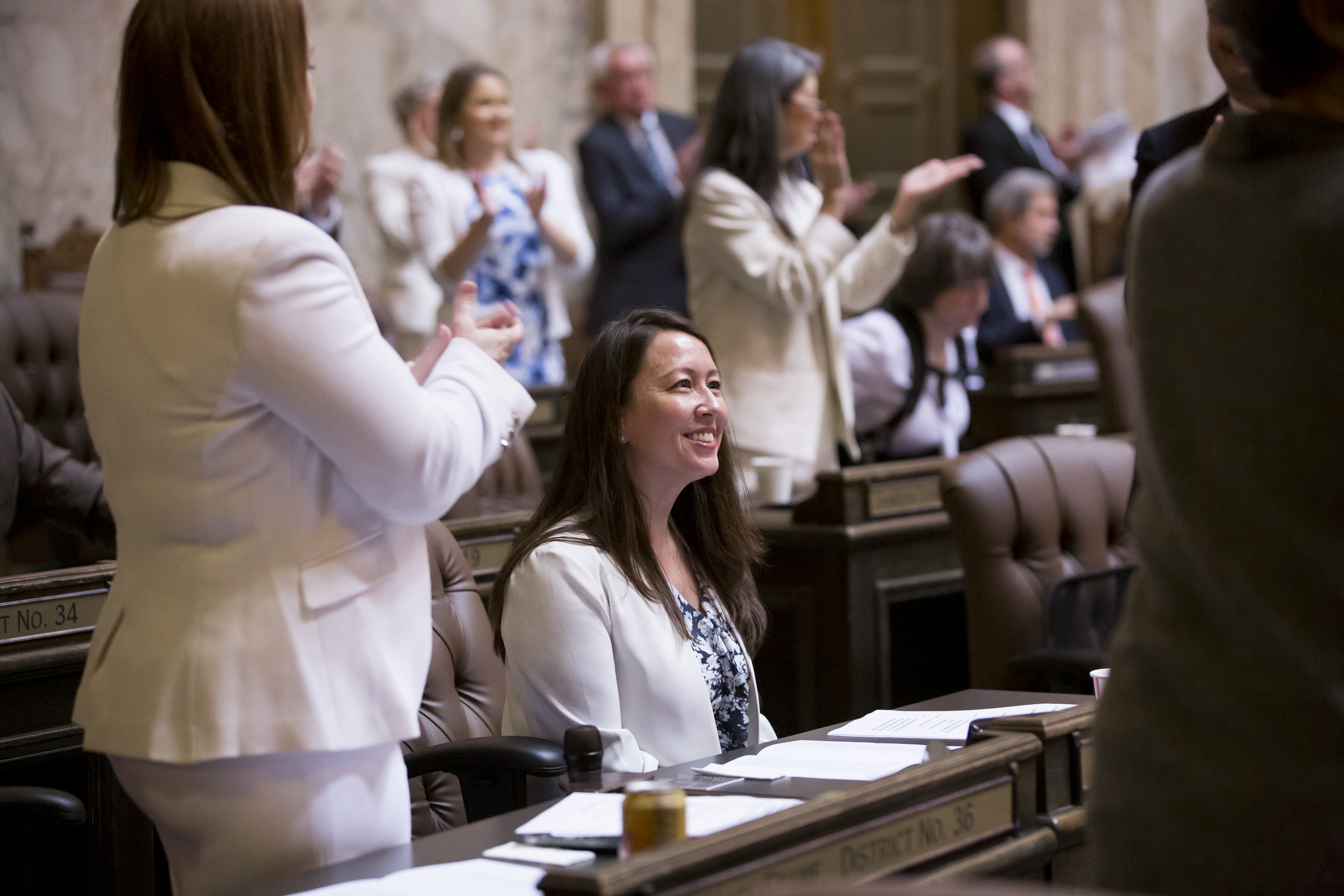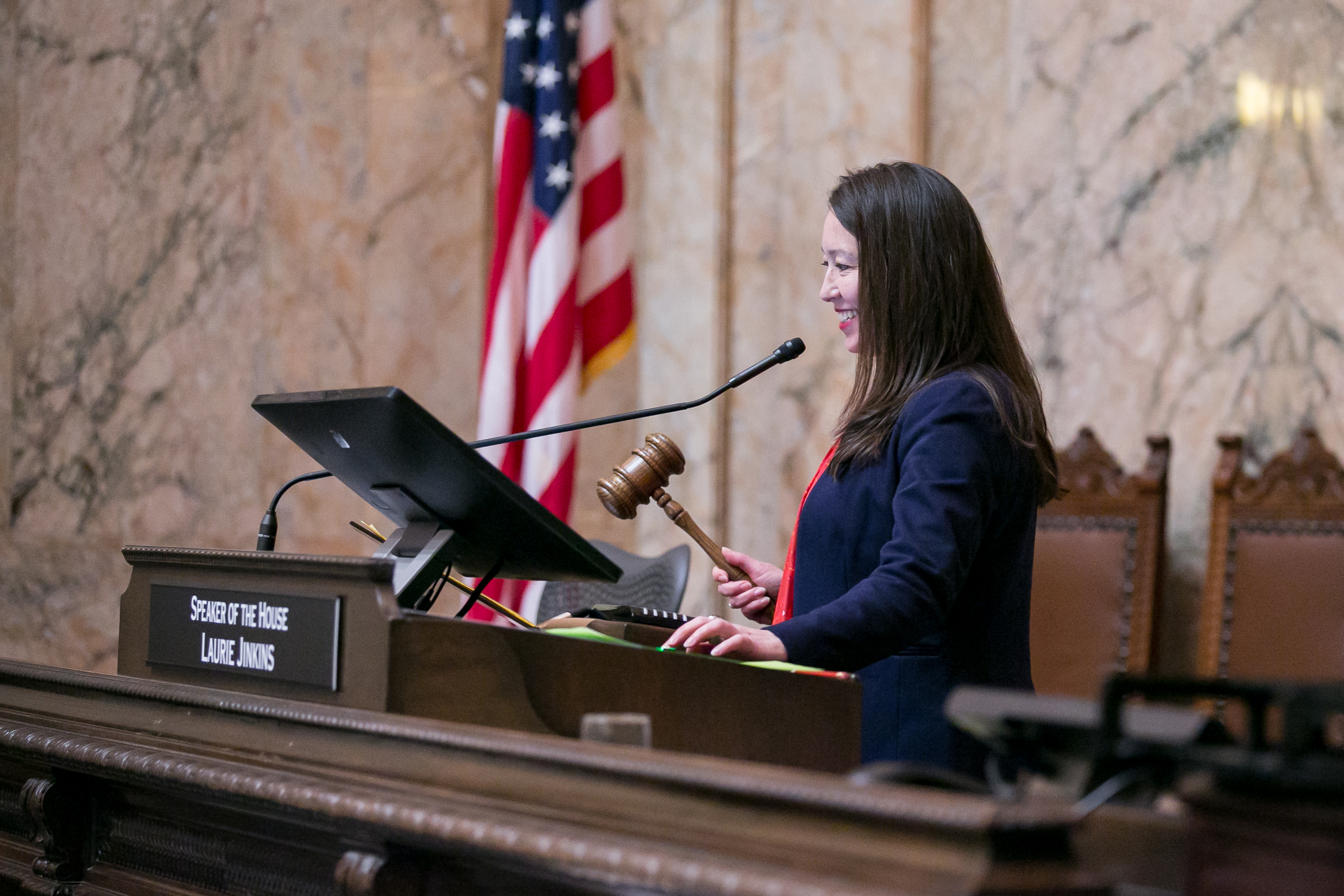Photo courtesy of the House of Representatives/LSS.
OLYMPIA—After a key deadline, five bills written by Rep. Davina Duerr (D-Bothell) passed the House and are being considered in the Senate.
“Each year, only 20 percent of bills get signed into law,” Duerr said. “I introduced ten bills this session, so I’m happy that half of them passed the House.”
Landfills gone rogue (House Bill 1154)—A lack of penalties in state law means landfill operators don’t face real consequences for breaking the law. Two landfills near Yakima have been on fire for years. This legislation puts teeth in our state laws to stop from being harmed by water or air pollution from landfills. It passed the House 58-39.
Building codes (House Bill 1183)—This legislation makes it more affordable to build housing. It incentivizes passive house and mass timber housing, cutting red tape so there are no requirements for upper-level setbacks or façade modulations. It also makes it easier to have rooftop solar and retrofit existing housing to be more energy efficient, saving you money. It passed the House 56-39.
Local government planning (House Bill 1135)—Closes a loophole in the law that allowed local governments to be out of compliance with the state’s Growth Management Act, which is critical to build smart, save money, and avoid more suburban sprawl. Passed 56-40.
Project permits (House Bill 1935)—A major reform passed in 2023 improved the permit process to build housing faster. The problem is a glitch in that law involving how building permits were defined. This legislation fixes the confusion. Passed 96-0.
Refrigerant gases (House Bill 1462)—Not the gases in your kitchen fridge. This legislation deals with the refrigerant gases in heat pumps, grocery stores, and other places. The gases are thousands of times more harmful to our climate than carbon dioxide. There are healthier alternatives already on the market. Passed the House 59-38.
“The next step,” Duerr said, “is these five bills get considered by Senate committees. If they pass committee, they’ll be up for votes on the floor of the Senate.”
###




